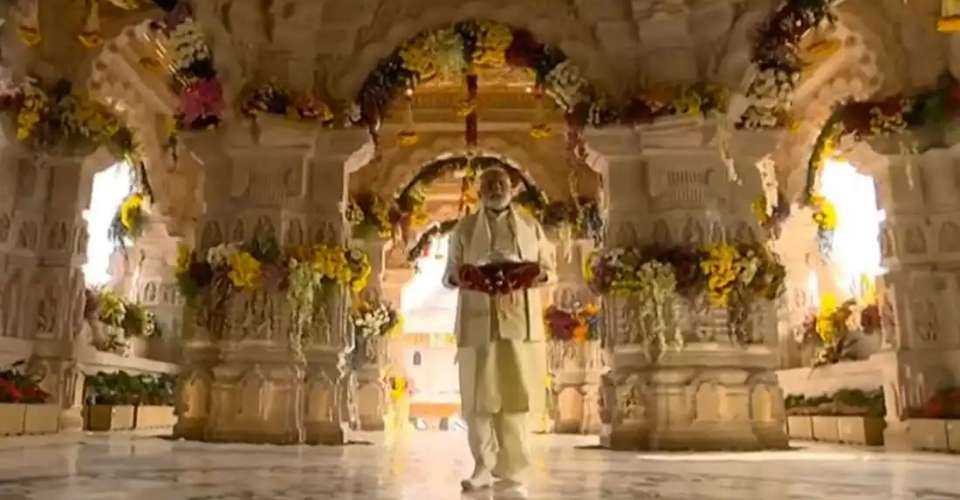
By Ben Joseph
India’s Dalits, or former untouchables, and tribal people, along with minority Muslims, voted strategically in the just concluded general election to prevent India from slipping into a theocratic Hindu nation.
Dalit-Muslim unity, perhaps the worst fear of Prime Minister Narendra Modi and his pro-Hindu Bharatiya Janata Party (BJP), came true at a crucial juncture.
The reduced majority for the Modi government in its record-making third term dampens hopes of altering the status of India’s crucial constitutional feature—secularism.
The Dalits have long suffered at the hands of India’s top castes. They have been exploited for centuries under the Hindu caste system, which was justified as “divinely sanctioned.”
Muslims are regarded as “invaders and infiltrators,” and their loyalty to the nation has remained suspect since the partition of the Indian subcontinent into two different countries on the eve of their independence in 1947, which resulted in a bloodbath.
The Rashtriya Swayamsevak Sangh (RSS), the mother organization of the BJP, and alma mater of Modi, swears by its hatred of Muslims. It also makes no bones about its preference for Manusmurti (code of Manu), an ancient text that prescribes moral laws and social codes for Hindus.
The Hindu-first fascist ideology of the RSS is against the secular constitution of India, and its primary objective remains to declare India a ‘Hindu Rashtra’ (Hindu nation) as soon as possible.
After India achieved independence, the founding fathers put together a secular constitution. They introduced an affirmative action policy for Dalits and tribal people, who together make up nearly 27 percent of India’s current 1.4 billion people.
Reserving quotas in legislative bodies, government jobs and state-run educational institutions did not go down well with the RSS and the BJP.
Based on their demographic composition, the Indian Constitution has reserved 84 seats for Dalits (officially called Scheduled Castes) and 47 seats for tribal people (Scheduled Tribes) in India’s parliament, in addition to education and job quotas.
Many Dalits and tribal people flocked to egalitarian Islam and Christianity to escape the tyranny of the Hindu caste system.
Muslims account for about 15 percent of the Indian population, while Christians make up just over 2 percent.
After Modi came to power in 2014, he left no stone unturned to prevent the unity between Dalits, indigenous people, and Muslims.
Buoyed by two consecutive terms at the helm of affairs in the world’s largest democracy, Modi sought a third term in a seven-phased poll, which concluded on June 1.
Modi unveiled his plans for a Hindu Rashtra (nation) by acting as a chief priest at the consecration of a Ram temple on Jan. 22 in Ayodhya in northern Uttar Pradesh.
This event and the utterances of BJP ministers, elected representatives, and workers caused rumors of a likely change of the constitution if Modi becomes prime minister for a third consecutive time.
This meant the Dalits, tribal people and minority communities could be treated as second-class citizens. Moreover, the affirmation action policy could be scrapped altogether.
Thus, Dalits and tribal people came to vote against Modi’s BJP, which ended up with a reduced majority in the 543-member lower house of parliament for the first time in 10 years.
In the 2024 polls, the BJP won 55 seats out of the total 131 reserved seats for Dalits and tribal peoples, which saw social justice and reservations take center stage.
In the 2019 general election, 77 reserved seats favored Modi’s ultranationalist party. Dalits and tribal people then figured prominently as an essential cog in the RSS-BJP’s polarization plan against Muslims.
But this time, the BJP lost 19 Dalit seats where it had incumbent lawmakers in Uttar Pradesh, Rajasthan, Maharashtra, Haryana, Karnataka, Bihar, Punjab and West Bengal, besides ten tribal seats in Maharashtra, Jharkhand, Karnataka, Rajasthan and West Bengal.
The opposition Congress, which won only seven reserved seats in 2019, managed to add to its tally with spectacular victories in 32 reserved constituencies in 2024. In the most populous Uttar Pradesh, the opposition Samajwadi Party managed to win eight reserved seats.
Like elsewhere, Modi while campaigning for reserved seats like Barabanki and Etawah in Uttar Pradesh and Banswara and Bharatpur in Rajasthan, made a scathing attack on India’s Muslims by calling them infiltrators. He disparaged them as “those who have more children.”
But it had little impact on the Dalit and tribal voters. His party candidates miserably failed in these constituencies.
Earlier, Modi ridiculed Muslim homes as “children-producing factories” and demonized them as polygamous: “Ame panch, amaara panchees” (We five and our 25). It was an oblique reference to a Muslim with four wives and multiple children that won him votes.
But this time, the opposition based its election campaign on the slogan, “Save the Constitution,” which is secular and ensures affirmation action, as against Modi’s proposed theocratic Hindu state where the poor and weak will be reduced to secondary citizens.
Thus, Modi’s and BJP’s ambitious plans to win “400-plus” seats collapsed like a house of cards. The Dalits and indigenous people in the most populous nation in the world clipped his wings.
Having failed to cross the halfway mark of 272, the BJP depends on its political allies to cobble together a coalition government.
The new government is set to take the oath on June 9. But India’s popular and polarizing leader and his party will be subdued after the unexpected results that jolted their aggressive Hindu nationalism.
source : uca news
